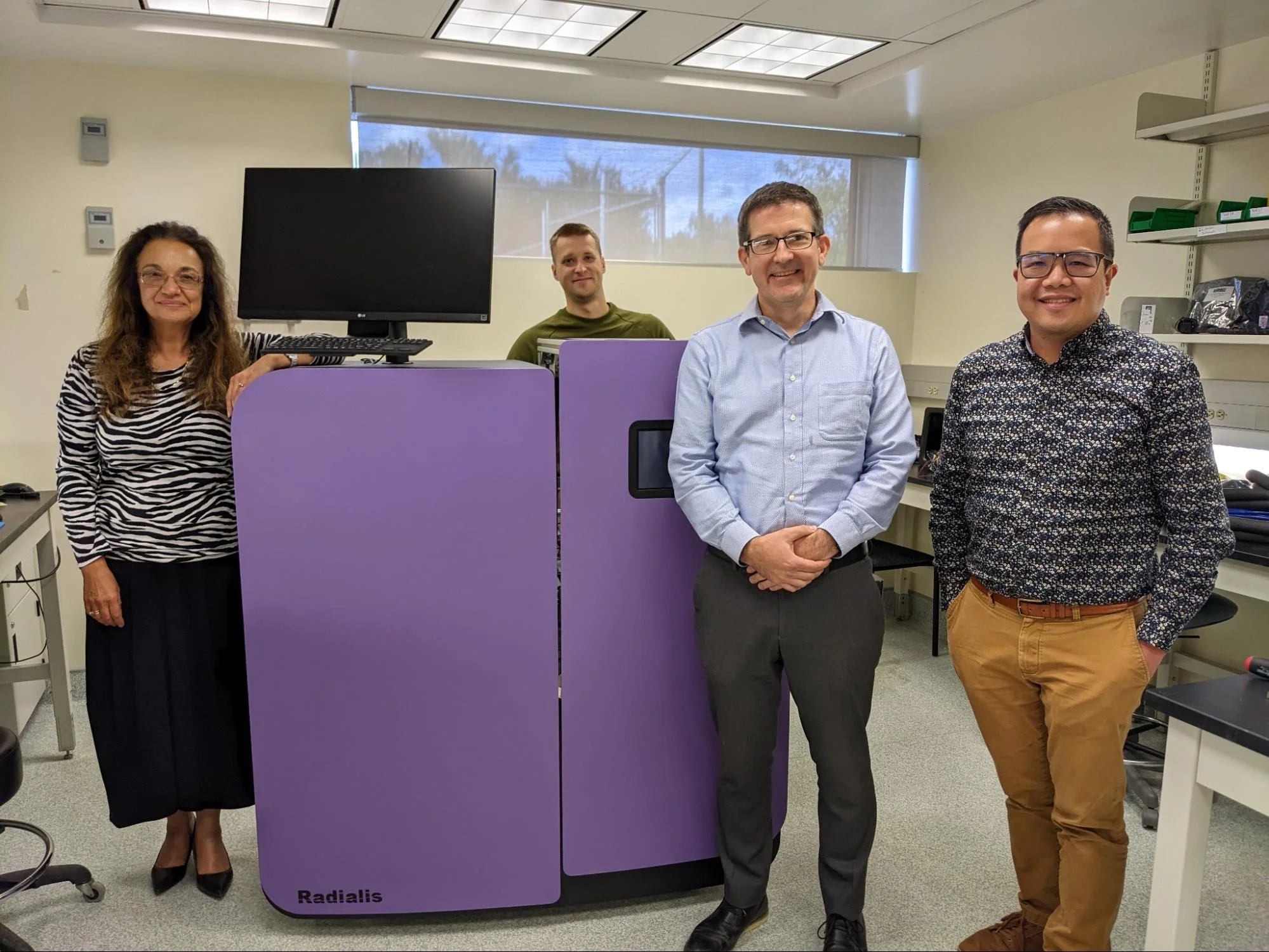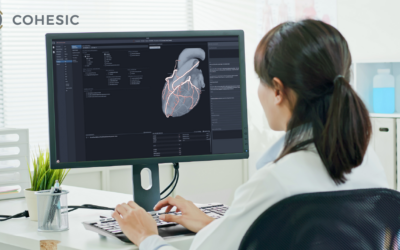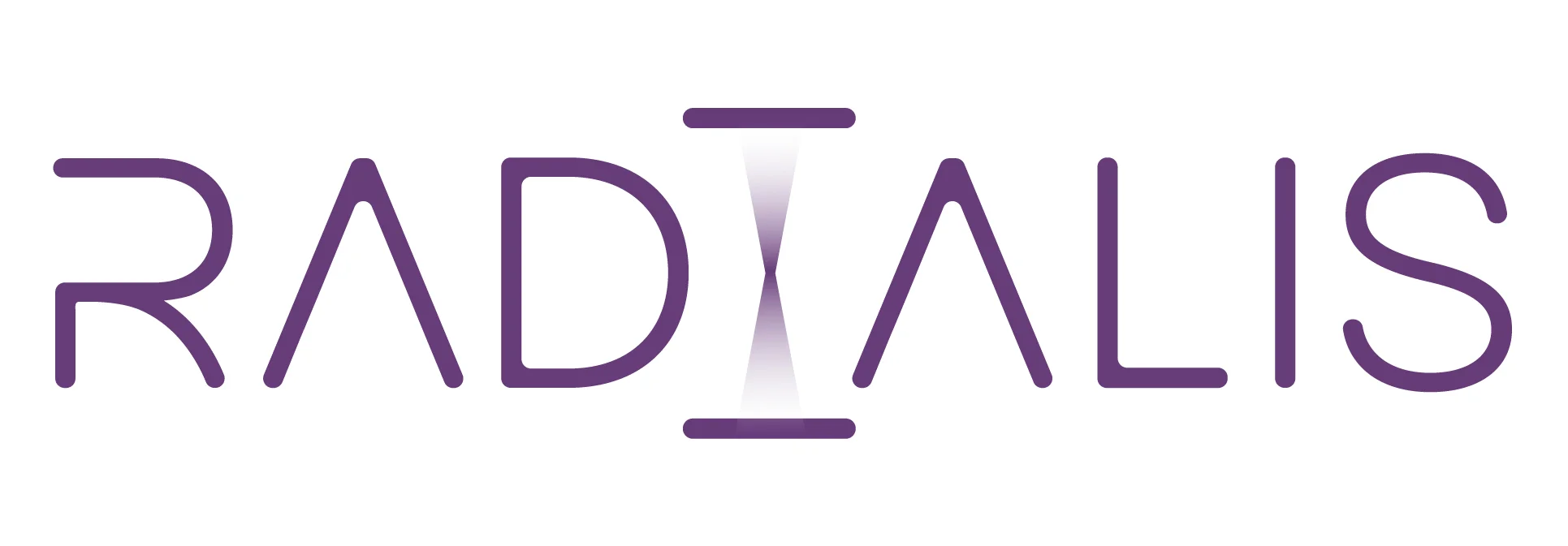
Radialis is an innovative medtech company that is unleashing the untapped potential of positron emission tomography. Led by Dr. Alla Reznik, the Chief Scientific Officer at Radialis and Professor of Physics at Lakehead University, Dr. Reznik and her team at Radialis have built a revolutionary positron emission tomography (PET) device called the Radialis PET Imager. The Radialis PET Imager effectively targets tumors in specific organs for diagnoses and treatment monitoring.
The development of the Radialis PET Imager began in 2005 when Dr. Reznik attended a conference with radiologists. At the time, she learned they were struggling to screen patients for breast cancer through mammograms. Mammograms are the standard testing method for breast cancer, but they can be painful for the patient and are not always an effective screening tool for those with dense breast tissue. Dense breast tissue often creates a tissue-masking effect which can camouflage cancerous cells when viewed through a mammogram scan. Nearly half of all people who are 40 and over who receive mammograms are found to have dense breast tissue, which means that many patients could be receiving inconclusive scans due to mammogram imaging limitations.
At the conference, when Dr. Reznik suggested PET imaging as an alternative option to avoid the discomfort and limitations of mammograms, the clinicians scoffed at the possibility due to the high radiation dose required. From that moment on, Dr. Reznik committed to transforming what was previously thought impossible through PET imaging by inventing a new form of PET technology.
PET is a nuclear medicine imaging technique with a high success rate for determining malignancy. It is a vital tool for cancer detection, staging, and treatment follow-up. However, traditional PET scanners require a high dose of radioactive tracer for accurate imaging. Because of this, many clinicians reject the possibility of using PET for screening. To put it into perspective, the radiation incurred from a typical PET scan can be ten times greater than that of a mammogram, which relies on X-ray technology.
Over more than ten years, Dr. Reznik and her team worked hard to research, prototype, and develop the pivotal technology. In 2016, Radialis was officially incorporated to commercialize the developed technology. Using a new approach, the Radialis PET Imager would use a low dose of the radioactive tracer for detection and quantification of cancer cells in a specific target organ, like the breast. Radialis’ approach uses a low enough dose of radioactive tracer that the PET scan is comparable to the level of radiation received in a typical mammogram. The cherry on top is that the Radialis PET Imager doesn’t require any compression of the breasts to capture detailed images.
When developing the Radialis PET Imager, Dr. Reznik needed a steady supply of radioactive tracers to test the device. For most small cities, radioactive materials can be hard to come by, but Thunder Bay happened to have a cyclotron to manufacture these materials locally.
“I have the resources and community I need to bring this technology to world healthcare systems,” said Dr. Reznik. “Thunder Bay has offered Radialis a nurturing health innovation ecosystem to grow in.”
The city offers a unique medical innovation system for Radialis to not only acquire the radioactive materials they need for their device but also positions Dr. Reznik to attract her top students to work for her company after they graduate.
“I have the resources and community I need to bring this technology to world healthcare systems,” said Dr. Reznik. “Thunder Bay has offered Radialis a nurturing health innovation ecosystem to grow in.”
Many students from Dr. Reznik’s lab have had the opportunity to work at Radialis to gain hands-on experience in the commercialization journey of innovative medtech. Brandon Baldassi and Oleksandr Bubon, who both work at Radialis, were former students in Dr. Reznik’s lab at Lakehead University.
For many students, their professors and supervisors provide the greatest source of inspiration in their careers. For Dr. Reznik, the greatest source of inspiration is her students. “I could not have built Radialis without my students,” said Dr. Reznik. “We knew that our discoveries could not just stay in our lab. We wanted to make an impact.”
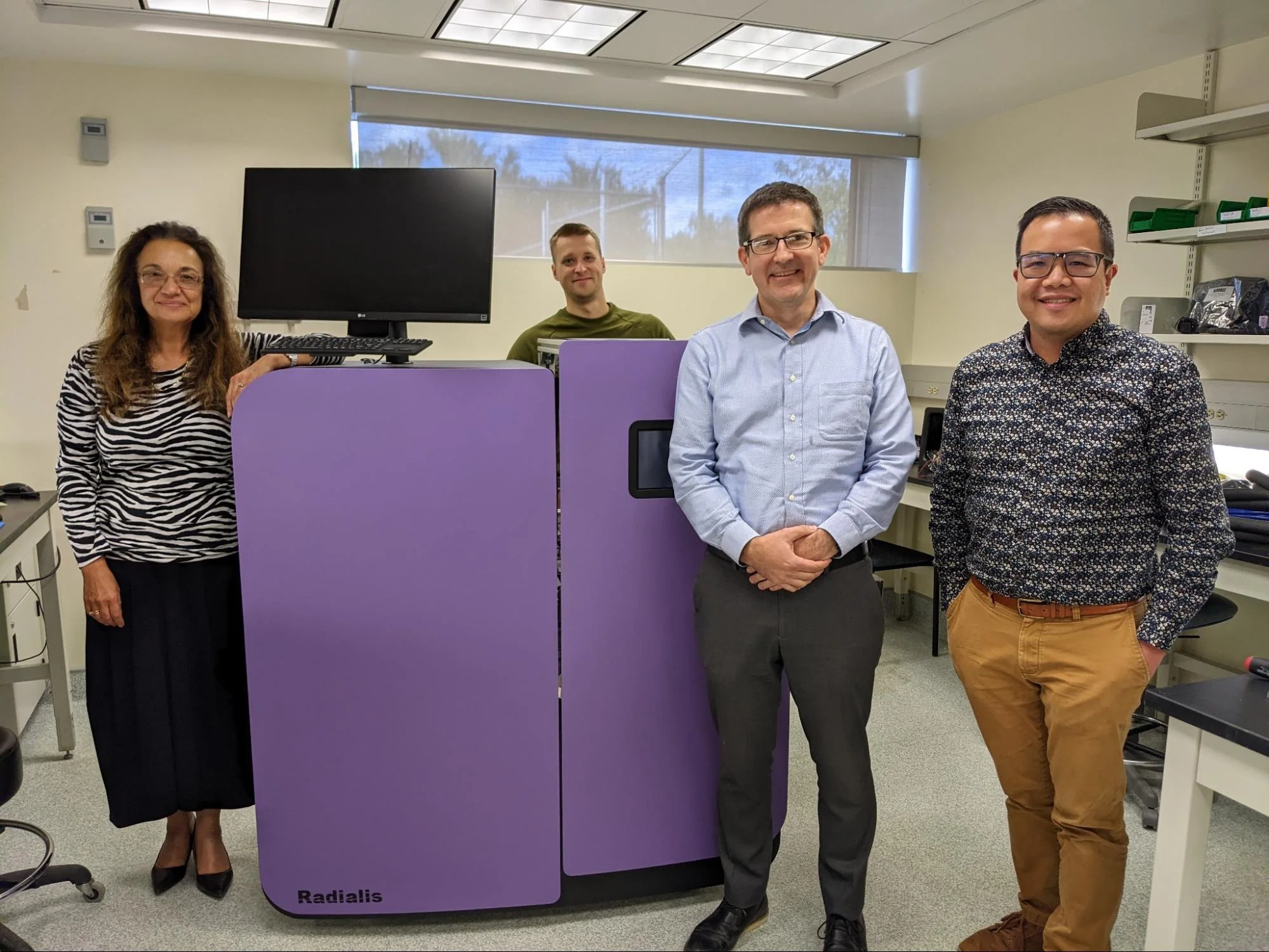
Figure 1: A photo of the Radialis executive team with Leo Mui, INOVAIT Funding Programs Manager in September 2023. From left to right, Dr. Alla Reznik, Radialis Chief Scientific Officer, Dr. Oleksandr Bubbon, Radialis Chief Technology Officer, Michael Waterston, Radialis CEO and INOVAIT Funding Programs Manager, Leo Mui, all pose with the Radialis PET Imager (purple medtech device, centre) at their headquarters in Thunder Bay. Image courtesy of Leo Mui.
“We knew that our discoveries could not just stay in our lab. We wanted to make an impact.”
In 2022, the Radialis team conducted and published the results of their first clinical study comparing the imaging capabilities of the Radialis PET Imager to mammograms, the current standard-of-care for breast cancer screenings.
The results were groundbreaking.
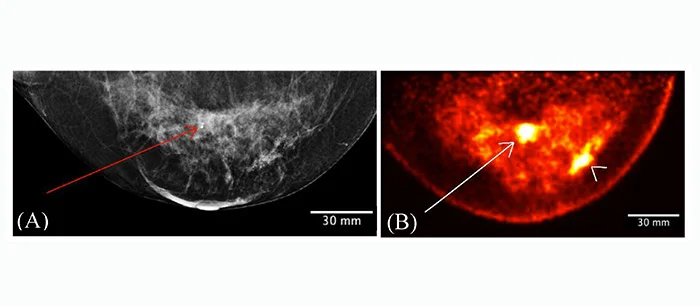
Figure 2: The figure above illustrates the differences between a mammogram breast image and a Radialis PET Imager breast scan. This figure comes directly from their first clinical study. The right breast featured belongs to a 56-year-old female with invasive ductal carcinoma and intermediate-grade DCIS. Image A showcases the image taken through mammography. Image B showcases the breast image taken with the Radialis PET Imager. Cancers are demonstrated by the arrows (A,B) and arrowhead (B). The second cancer (arrowhead) is visualized only by Radialis PET Imager (B). Image courtesy of Dr. Alla Reznik.
For example, not only did the Radialis PET Imager corroborate the cancer found through a mammogram image, but it also revealed a second cancer location in the breast that was not detected due to the tissue-masking effect (see Figure 2). The images generated from the Radialis PET Imager also showcased where the highest activity and growth concentration occurred. This is virtually impossible to conclude from just a mammogram alone.
The results from the Radialis study suggest that low-dose organ-targeted PET scans are possible and are much better at capturing the critical diagnostic information clinicians require to confidently diagnose a patient. The Radialis PET Imager’s unique and patented construction can capture detailed diagnostic images without the limitations of mammography, to reveal more clinical information about the patient. Through the INOVAIT Pilot Fund, the Radialis team has plans to integrate machine learning and artificial intelligence to enhance the device’s capabilities and performance.
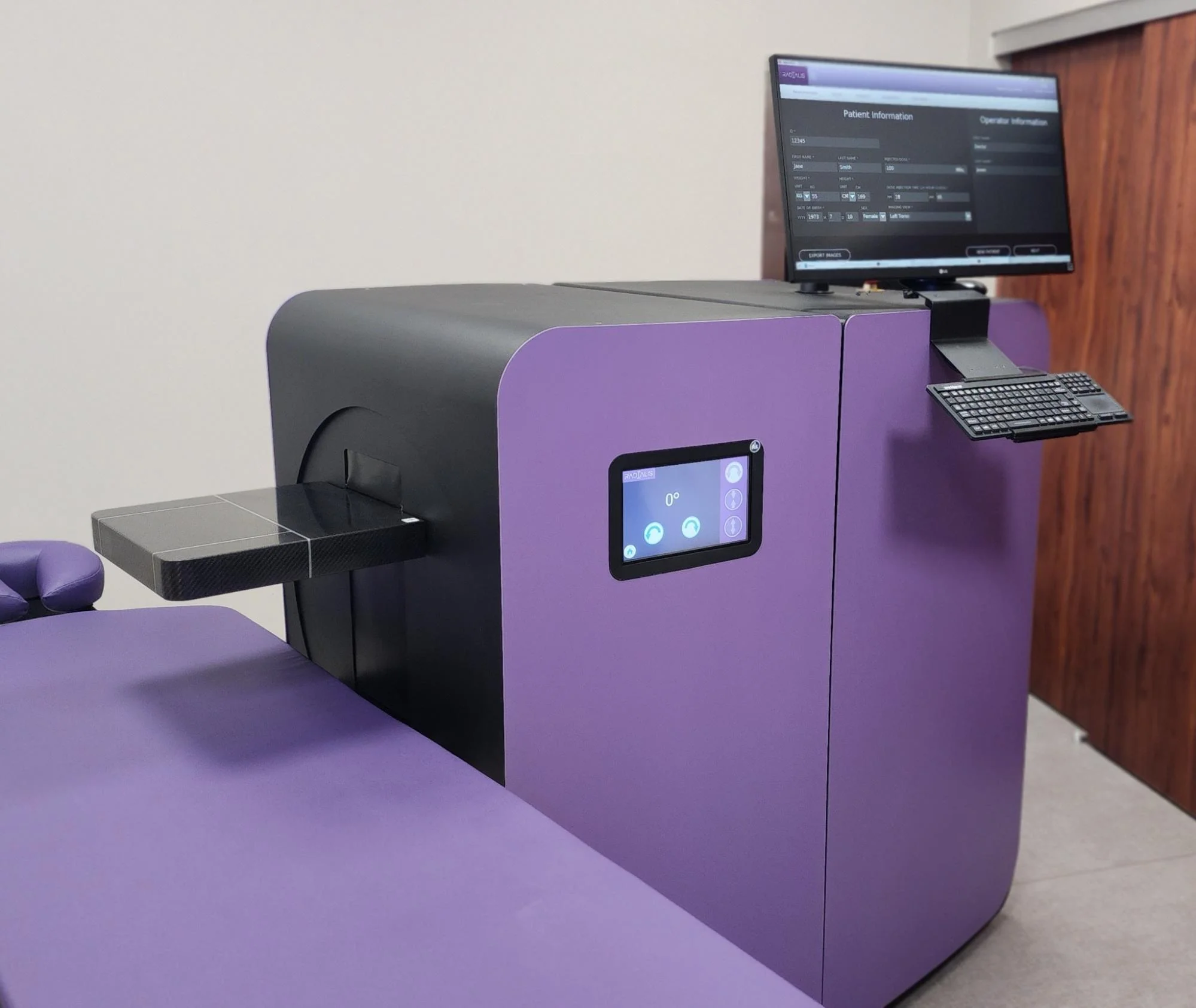
Today, the Radialis PET Imager has been deployed and used in cities like Toronto and Pittsburgh (See Figure 3). In full circle fashion, the Thunder Bay innovation ecosystem that sowed the development and commercialization of the Radialis PET Imager will reap its benefits. The Thunder Bay Regional Health Sciences Centre has purchased and will acquire a Radialis PET Imager for its facilities. Although initially set out to tackle problems plaguing breast cancer screening, the device has shown potential for screening and monitoring other cancers, including prostate, with other emerging use cases.
Dr. Reznik and her team surpassed the original goals she set in 2005. With the nurturing ecosystem surrounding and supporting Radialis, Dr. Reznik and her team are making a difference in healthcare worldwide through their solid roots in Thunder Bay.
Radialis has been an INOVAIT member since 2022. Are you interested in becoming an INOVAIT member? Get in-touch with us today.

